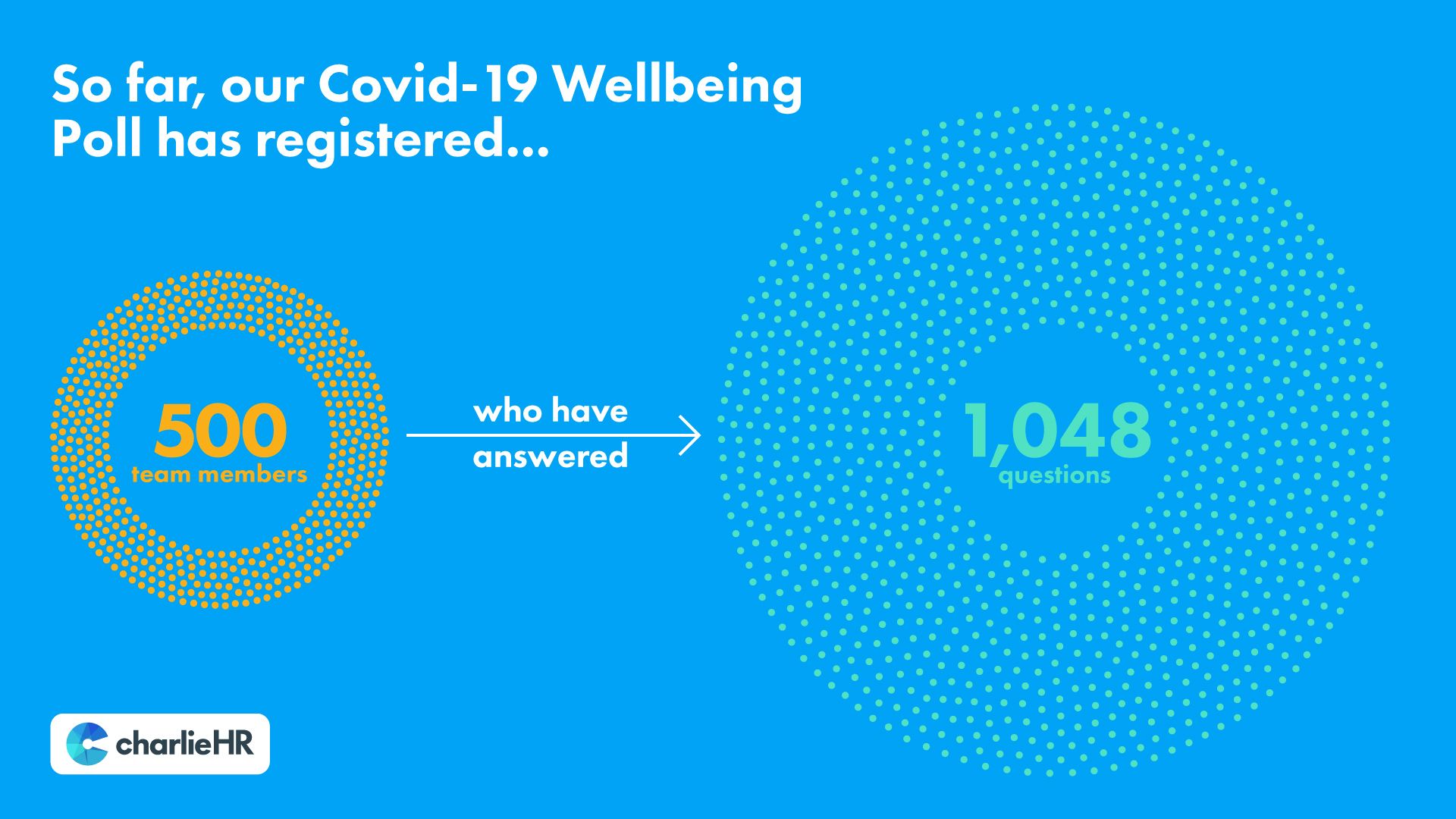How do you build culture when you don’t have the office as a crutch?

After months of forced remote work, many small businesses are starting to realise that we may not be able to return to the office as we’ve always known it. In this post, we look at how we can nurture a successful culture — without having to rely on the office for support.
They say naming and talking about your fears is the first step in getting over them. Well there you go, I admit it: I’m terrified that the office isn’t coming back like we had it in the good old pre-corona days.
I’ve spent the last 10 years passionately learning and experimenting with how to build world-class workplace cultures. We haven't always gotten it right, but I’m confident we’ve put our best foot forward the majority of the time.
And now the office, one of the primary tools we’ve used to build relationships and help our culture thrive, is gone — and I don’t think it’s coming back, not like before 2020 anyway.
The truth is, the current situation made me realise we’ve all been a bit lazy. We’ve been reliant on our offices and their natural osmosis of information and habits to prop up our cultures. We’ve been using them as a crutch. So how do we build on our culture when we don’t have the office to lean on anymore?
Every business has two options: wait and hope, or get out on the front foot. Well, I’ve never been good at waiting around for something to happen, so I guess we’ll be tackling this. How can we create a culture our business can thrive on, especially now, in this new remote world?
It is actually easier than one may think. When you look at culture and what it’s really made of, the office takes a back seat. If I had to summarise what culture is for me, that would be:
- Brilliant people
- Progressive policies
- Appropriate processes
Let’s unpack how each of these has been affected by remote working. And let’s see how we can use our people, policies and processes to bring our culture back to life in this new office-less world.
Prepare your people
Most of us have hired teams of people to come into the office every day. For many of them, the office is a core part of their working routine.
Losing this physical space means having to overturn the way your people have always organised their working days and the way they’ve worked together as a team. Make sure you tackle this uncertainty and prepare them for what lies ahead, following these key steps:
1 - Communicate more rather than less. Make sure you share your thinking early and keep everyone up to date with the decisions that lie on the horizon. Make your team aware of the options you are weighing up and give them a timeline for when you’ll be able to update them on any next steps. We’ve had enough of surprises this year — don’t add any more.
2 - Have a plan. In the past few months, the lack of clarity about what the future holds for us has been putting a strain on everyone’s mental health. Try and give your team clarity, at least about that one thing you can control — what the future of work looks like for your company. Companies like Hubspot, Facebook and Twitter have paved this path by ensuring their teams know that remote work is a possibility for the rest of the year.
At Charlie, we’re currently working on a post-Covid plan, but we’ve already told our team that, whatever that will be, we’ll never become a fully-remote company. On the other hand, we’ve also decided that, for the foreseeable future, going into the office will be on an opt-in basis only — a point that many team members found reassuring.
3 - Develop useful behaviours. Be aware that the values and behaviours you’ve hired for and built up so far to be successful in an office environment might not be the same that we’re all going to need in a future when remote work becomes more common. So don’t be afraid to challenge them — review your behaviours and adapt them to your new circumstances.
To give you an example, I’m someone who draws motivation from the energy of those around me. How can we ensure we stay motivated and keep momentum when we’re all working remotely? We’ll have to rethink what we mean by motivation and how we can make it viable for this new context.
4 - Listen. Make sure you’ve got routes for all different types of feedback and input, be that via anonymous polls or by creating opportunities for conversations. Don’t assume you have all the answers, listen - you’ll be surprised by what you learn.
One way we’ve recently tried to ‘listen’ was by creating a ‘Covid-19 Wellbeing Poll’ in Charlie. We offered our team the opportunity to give us feedback on the way we’re supporting them at this time, and to do that anonymously if they wanted. We found this poll so useful that we made it available on Charlie for all the small companies who use our software. So far, our Covid-19 Wellbeing Poll registered 1048 questions answered by more than 500 team members — a testimony of the importance of listening and being there for your team.
You can find out more about how to create polls in Charlie here.
Codify your policies
It’s time that we drop the idea that policies are just documents, printed and most likely gathering dust in an (unused) office somewhere. They’re much more than that. I like to think about policies as ‘the agreed do’s & don'ts of a business’. They codify what you do and don’t do as a company. Ultimately, they articulate your company culture — they define who you are.
With no office, we’ve lost the space for those values to be brought to life. There’s less concrete evidence of what you do and don’t do as a company, because the workspace itself has become intangible.
In a remote world, if your policies are not written down and documented somewhere, they don’t exist.
Here are some steps you can take to make sure your policies keep existing and reflecting who you are and where you want to go as a company:
1 - Identify any missing policies. List your existing policies and look at them in the context of the current situation — what are you missing? For example, do you have a mental health policy to look after your team in these challenging times?
2 - Adapt your policies to the current situation. Avoid waiting for everything to go back to normal — be reactive and update your policies so that they can support your people and your business through this time. If you already have a flexible working policy, for example, you could make sure it reflects your team’s new needs in terms of the time they can dedicate to children or elderly dependants while working from home.
3 - Make sure your policies are kept front of mind by everybody in the business. With no physical location for them to live in, your policies should be stored in a place that is extremely easy to find by everyone in your business. Ideally, that would be somewhere your team already visit regularly, so that they don’t need to search for it.
We build and store all our policies directly in Charlie using the Handbook feature. Our team already use Charlie daily to check out who’s in and out of the office, or to book time off — our company policies are just one click away for them.
4 - Ensure your policies are compliant. You should think about your policies as a living creature, changing and evolving with your team and your business, and adapting to any unexpected event that is thrown at you. This is now particularly important given the government updates and new legislation that keep coming in response to Covid-19. It’s not just about building great policies for your team — you should also make sure they are kept up to date and compliant.
If you need help creating and reviewing your company policies, you may be interested in HR Advice. Our qualified HR advisors can review your handbook or create one for you from scratch, making sure it is up-to-date and compliant.
Adapt your processes
In a world where we don’t have as regular access to the office as we used to, our old business processes are going to need to shift drastically. In other words, we’ll need to change the way we work.
In order to thrive in a more remote world, we’ll have to rebuild our cultures around these key themes:
1 - Transparency. Leaving things open for interpretation is always dangerous, and much more so if we can’t communicate things in person. It is much easier for team members to feel like they’ve been left in the dark about something when we’re not all in the same room.
Start with looking at your compensation and salary review process — is it clear what people need to do to increase their compensation? This may be the time for you to build a career progression framework for your team to have more visibility on their career path.
2 - Alignment. Staying aligned as a team is much harder when we’re not sharing a physical space. At the office, we used to unconsciously get huge amounts of context just from an informal chat at the coffee machine or by eating lunch together.
In this new remote world, having a framework for staying aligned across teams on company priorities will do wonders for motivation and performance.
Using OKR cycles is a common practice when you want to stay focused on company goals. Make sure you adapt the way you plan work and review results as a team to the remote setting you’re now in.
At Charlie, we’ve reorganised our communications around OKRs to be more clear and frequent. We constantly remind ourselves of our goals and update the team on our achievements during daily virtual stand-ups and weekly video calls. It really helps us to work cohesively as a team and achieve our goals.
3 - I believe that a constant exchange of feedback is the most essential ingredient for effective growth. The problem is — feedback doesn’t flow as freely when we can’t turn to the person next to us for input. So, for your people to be able to grow and develop, you now need to supercharge your remote one-to-one conversations.
One-to-ones are at the core of what we wanted to achieve with Charlie’s new Reviews feature. With Charlie’s Reviews, we ensure that those important conversations do happen, even if working remotely. Also, now that we’ve lost that face-to-face exchange, we can rely on Reviews to ensure the way we exchange feedback is consistent across the whole company.
Conclusion
To build a culture that thrives in a world where we don’t have our office to lean on, we need to focus on our people, our policies and our processes.
Culture has always been a blurry, unclear term. If we define it as our people, policies and processes, then it finally becomes something real, something we can control and something we’ll always be able to lean on, whatever happens.
Prepare your people, codify your policies and adapt your processes, and your business will be ready to thrive, no matter what the rest of 2020 has left for us.
Good luck. 💙





